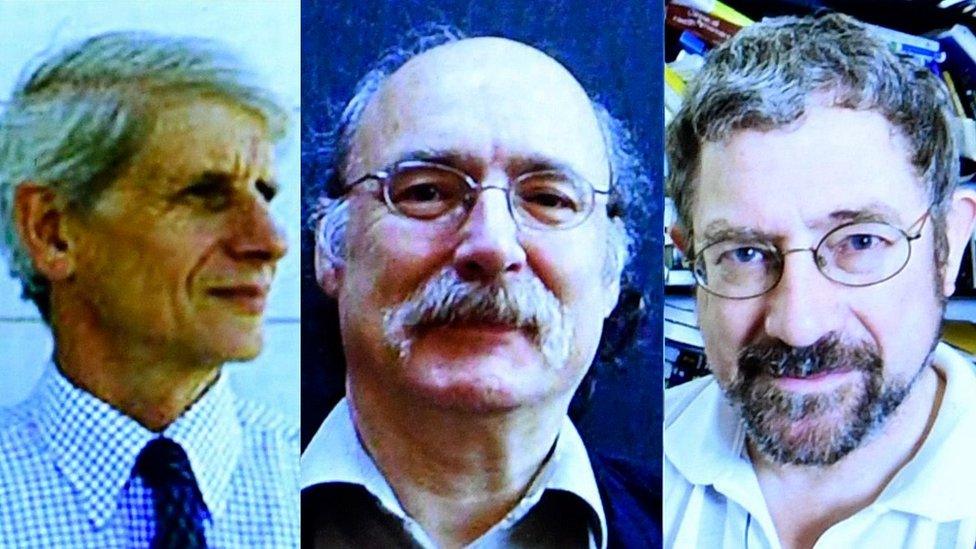Scots awarded Nobel Prize in Physics
- Published

(L-R) David Thouless, Duncan Haldane and Michael Kosterlitz
Two Scottish-born scientists have been awarded the 2016 Nobel Prize in Physics for their discoveries about strange forms of matter.
David Thouless and Michael Kosterlitz will share the 8m kronor (£727,000) prize with their fellow scientist Duncan Haldane.
Their work could result in improved materials for electronics and super-fast computing.
The three men received the award at a ceremony in Stockholm, Sweden.
Announcing the prize in October, the Nobel Committee said the trio's discoveries had "opened the door on an unknown world".
One half of the physics prize was awarded to Thouless, with the other half jointly given to Haldane and Kosterlitz for "theoretical discoveries of topological phase transitions and topological phases of matter".
Although British-born, all three now live and work in the US.
Strange effects
Thouless was born in 1934 in Bearsden and is an emeritus professor at the University of Washington. Michael Kosterlitz was born in 1942 in Aberdeen and is currently affiliated to Brown University.
They and Haldane join a prestigious list of 200 other Physics laureates recognised since 1901.
All three researchers used maths to explain strange physical effects in rare states of matter, such as superconductors, superfluids and thin magnetic films.
Kosterlitz and Thouless focused on phenomena that arise in flat forms of matter - on surfaces or inside extremely thin layers that can be considered two-dimensional.
This contrasts with the three dimensions of length, width and height which are usually used to describe reality.
Haldane also studied matter that forms threads so thin they can be considered one-dimensional.
Much of the work involves a field of maths known as topology, which describes properties of matter at large and small scales.
Two Scottish-born scientists have been awarded the 2016 Nobel Prize in Physics
- Published4 October 2016
